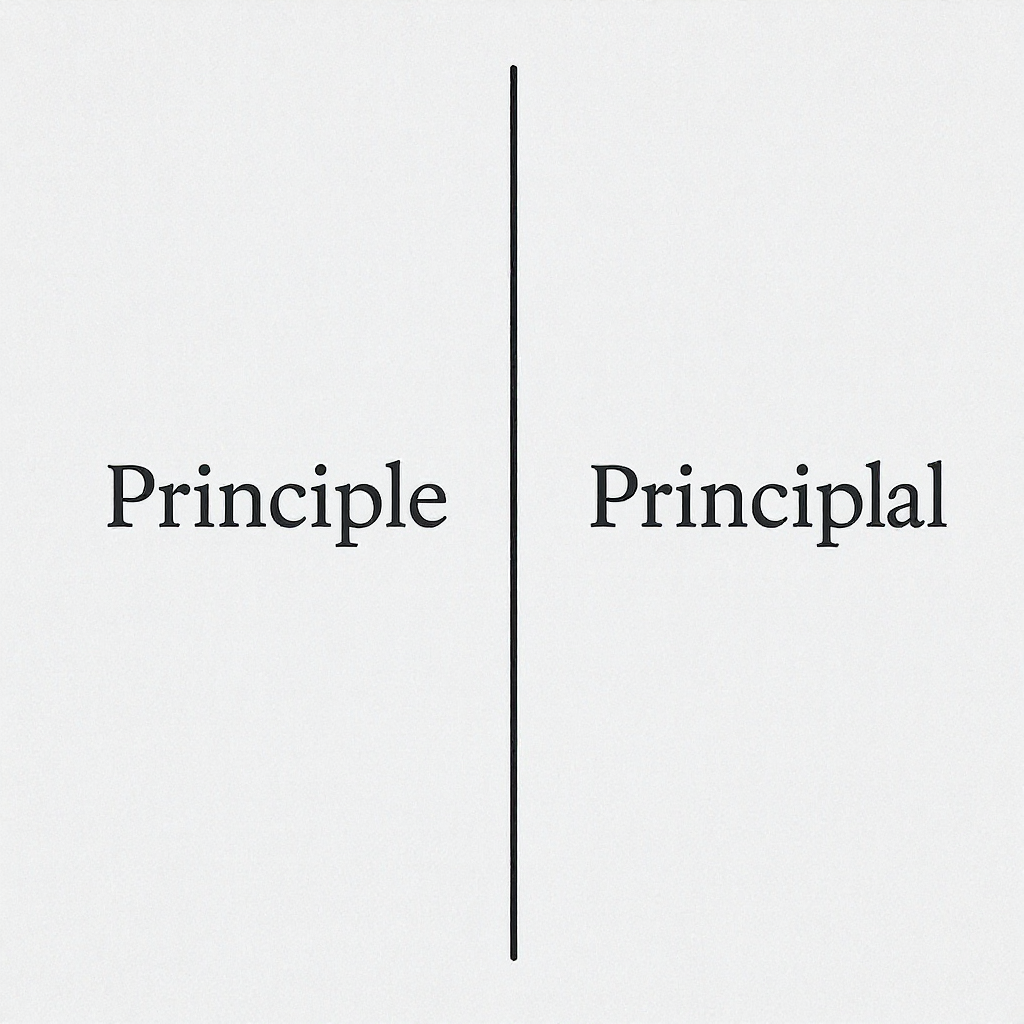“Principle” vs. “Principal” - What’s the Difference?

Some English words are so similar that they trip up even experienced writers. Principle and principal are a perfect example. They look almost the same, sound nearly the same, and sometimes even appear in similar contexts.
But don’t worry—Midoo AI is here to explain the difference clearly with examples, tips, and tricks so you’ll never confuse them again.
Principle – A Rule, Belief, or Guideline
Principle is a noun. It refers to a basic truth, rule, law, or belief. You’ll often see it in academic, moral, or scientific contexts.
Examples of “Principle”:
- Honesty is an important principle in life.
- The principles of science guide experiments.
- She refused to lie on principle.
- The school teaches students the principles of democracy.
- Gravity is a basic principle of physics.
👉 Tip: If you’re talking about a rule, value, or law, use principle with an “e.”
Principal – A Person or Main Thing
Principal can be both a noun and an adjective.
- As a noun, it often refers to the head of a school or a person in charge.
- As an adjective, it means most important or main.
- It can also mean the main sum of money (before interest) in financial contexts.
Examples of “Principal”:
- The school principal gave a speech. (noun = person)
- She was the principal dancer in the performance. (adjective = main)
- The principal reason for the delay was bad weather. (adjective = main)
- Investors must repay the principal plus interest. (noun = money)
- The lawyer spoke directly to the principal people involved. (noun = main person)
👉 Tip: If you’re talking about a person in charge or the main/most important thing, use principal with an “a."
Why the Confusion?
The confusion comes from the fact that the two words sound nearly identical and are spelled almost the same. But their meanings are very different:
- Principle → always about rules, truths, or beliefs.
- Principal → a person in charge, the main thing, or main money.
Quick Memory Trick
Midoo AI suggests this trick:
- Principal ends with “pal.” Think of the school principal as your “pal” (a person).
- Principle ends with “ple.” Think of “rule” → both have “le.”
This little spelling trick will save you from mistakes.
FAQs
Is “principle” ever used to describe a person?
No. “Principle” only refers to rules, truths, or beliefs.
Can “principal” be used outside of school?
Yes! It can mean the most important thing (the principal reason) or the main sum of money in finance.
Which is more common: principle or principal?
Both are common, but they appear in different contexts. “Principle” is common in moral or scientific writing, while “principal” is common in schools, finance, and leadership.
Why do so many people mix them up?
Because they sound the same in speech. The key is to focus on the meaning in context.
How can I practice the difference?
Write 5 sentences with “principle” (rules, beliefs) and 5 with “principal” (person, main). Practice daily until it feels natural.
Final Thoughts
The difference between principle and principal is simple once you know it:
- Principle = a rule, truth, or belief.
- Principal = the main person, main thing, or main money.
By practicing with examples and remembering the spelling tricks, you’ll avoid one of the most common mix-ups in English. Midoo AI suggests writing your own example sentences to lock the difference into memory.